Genealogy Gems Hidden in the Polish Archives -Tips and Search Strategies for Persistent Family Historians
- Speaker: Jakub Czupryński
- Lecture Date: 04-10-2022
Summary
This lecture is dedicated to researchers with Polish roots who would like to expand their searches to less popular archival resources kept in Poland. Answers to some of the most burning family history questions we all have lie hidden in sources accessed by very few. In this lecture Jakub Czupryński will give practical guidelines on how to search for additional family information not covered in the obvious sources, such as vital or census records. He will discuss how we can break through some of the brick walls we all face using such resources as notary and court records and municipal, tax and property documents.
Speaker Bio
Jakub Czupryński is a researcher and tourist guide specializing in the family history of Polish Jews. For almost 15 years he has been carrying out professional genealogical research and organizing heritage tours in Poland. He collaborates with the Jewish Community Centre (JCC) in Kraków as a volunteer genealogist and administrator of a website dedicated to Jews of Kraków and Western Galicia. (https://www.krakowjewishheritage.org/)
Jakub currently is working on a database of Kraków ghetto residents.
